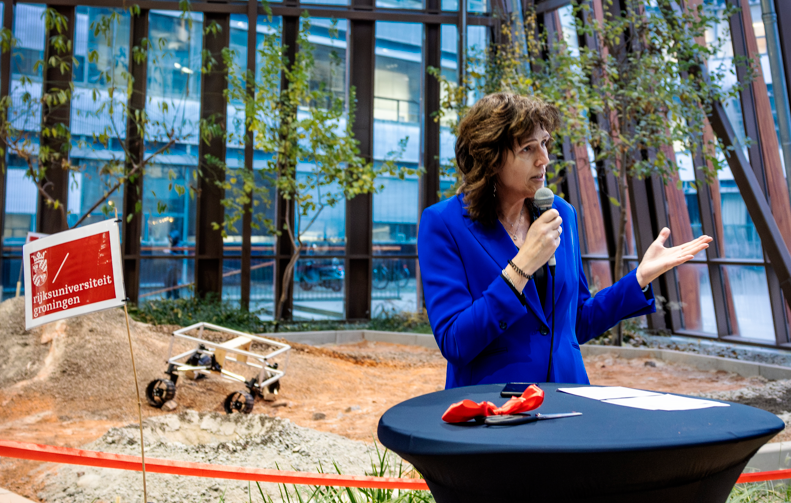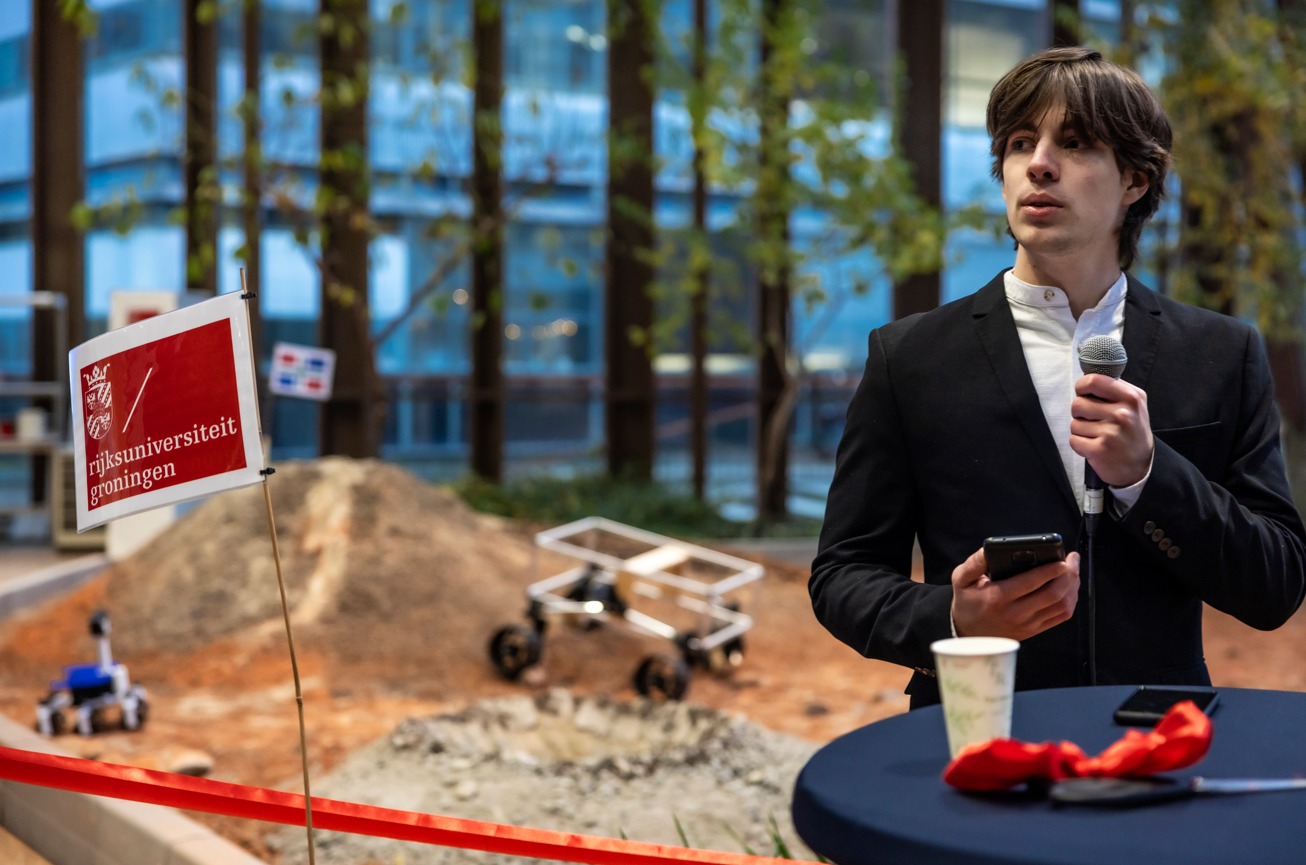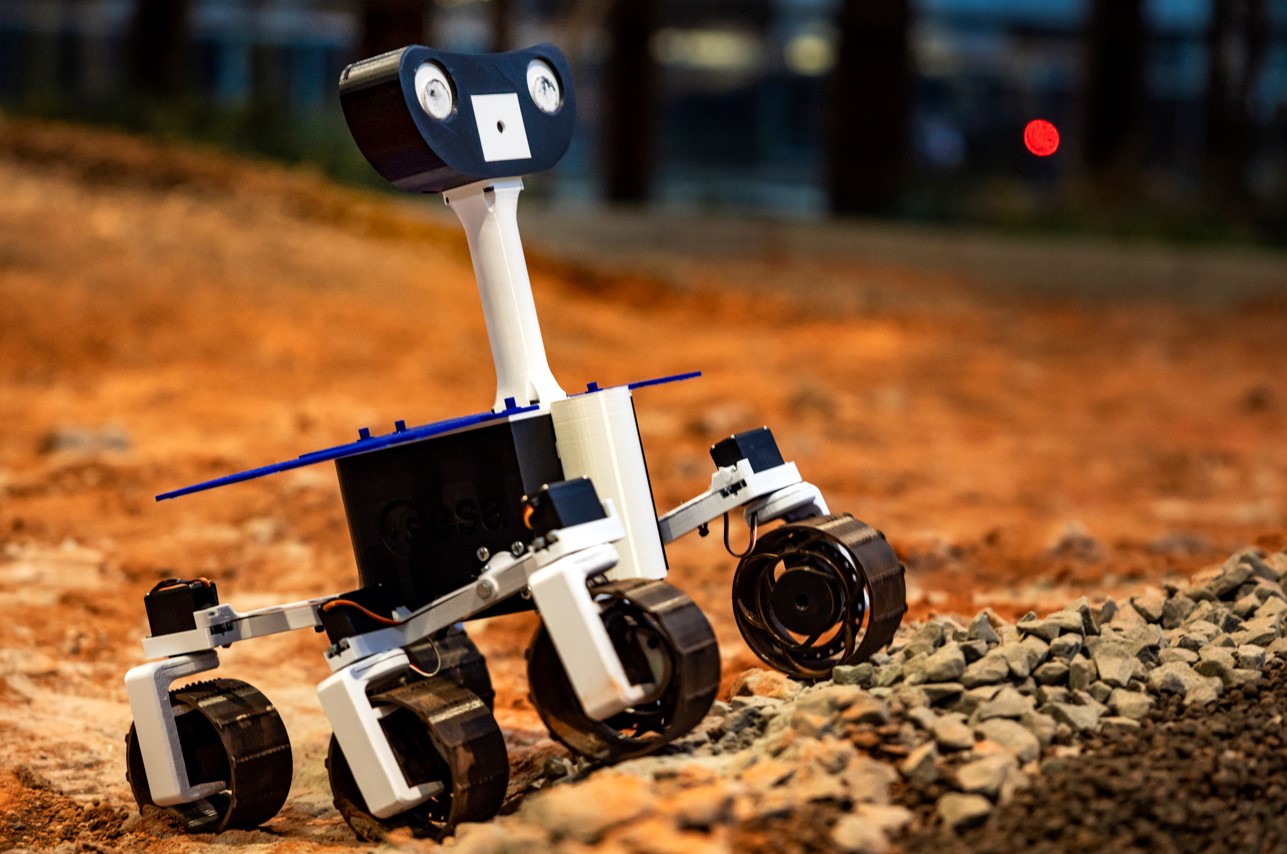UG students put themselves on the map with homemade Mars Yard
Friday 1 December, marked the official opening of the Mars Yard! Over the past few months, the students of the UG GEARS team have worked hard to realize the Mars Yard on Zernike campus. They will participate in the on-location competition of the so-called 'European Rover Challenge' (ERC) next year. Below, board members Helena Jaworska and Błażej Rozmarynowicz tell us more about the realization of the Mars Yard, the base on which the competition is built.
Text: Froukje Duursema / Photos: Leoni von Ristok

The UG's GEARS team (formerly Makercie) recently won the first place in the Polish European Rover Challenge. Organized annually since 2014 in Kielce in Poland, the ERC has two competitions: one on location in Poland and a so-called remote competition. The purpose of the competition is to build an independent Mars rover and have it perform NASA-inspired tasks. The UG’s GEARS team won the remote competition in Groningen last September, and is preparing to participate in the on-location competition to be held in Kielce next year.
Meanwhile, the team consists of more than 50 members from nine different countries. It also represents 15 areas of study, including mostly undergraduate programmes. GEARS stands for “Groningen Engineering and Robotics Student Association”, the UG's first student association dedicated to engineering and robotics.
It’s not easy
The Mars Yard is hidden in the Winter Garden of the UG’s Energy Academy. Last summer, the team began developing it on Zernike campus. The landscape consists largely of gravel, but also of volcanic rock, which is not easily available. Chairman Błażej Rozmarynowicz emphasizes that obtaining the necessary materials was especially hard. ‘Some of the materials are leftover materials from the construction of the Feringa Building on Zernike campus, which made it possible to reuse materials. We were really lucky with that. On the other hand, we had to import a lot, which delayed the construction considerably’.

Mars Yard as the basis for the competition
During the competition in Poland, the team must perform four different tasks, including navigation, science and sampling, maintenance, and presentation. The Martian landscape forms the basis for most of these tasks. For example, as part of one of the tasks, the rover will pick up samples such as rocks and sand via a robotic arm. To practice performing this task, the Mars Landscape was developed on Zernike campus. The Mars Yard serves both as a meeting place for the team and their activities, as well as for hosting events. In the summer of 2024, the rover will be transported to the competition site in Poland, where a large, similar Mars landscape will be ready.
ERC as a learning experience
Helena, vice chair of GEARS, says the team sees the competition primarily as a learning experience. 'Although the UG is not an official technical university, we would like to emphasize its technical character. To get inside already established robotics teams you have to have a lot of experience, and this experience is difficult to get at a non-technical university. This is why we created the GEARS team. We are willing to learn and we have shown it'. Many people who participated in the remote challenge had no specific experience, but are, for example, ‘regular ‘ AI students with an interest in robotics.
GEARS would like to set an example for open access to science and technology. In addition, through their study association, they hope to create a learning environment in which anyone can participate, with or without experience. In the future, the team will provide hands-on training in areas such as coding, 3D design, and electronics.

Last Friday 1 December was the official opening of the Mars Yard in the Energy Academy on Zernike campus. The event was introduced by Dr Bahar Haghighat, the supervisor of the GEARS team, after which Chairman Błażej Rozmarynowicz talked about the story behind GEARS. Rector Jacquelien Scherpen officially opened the event.
